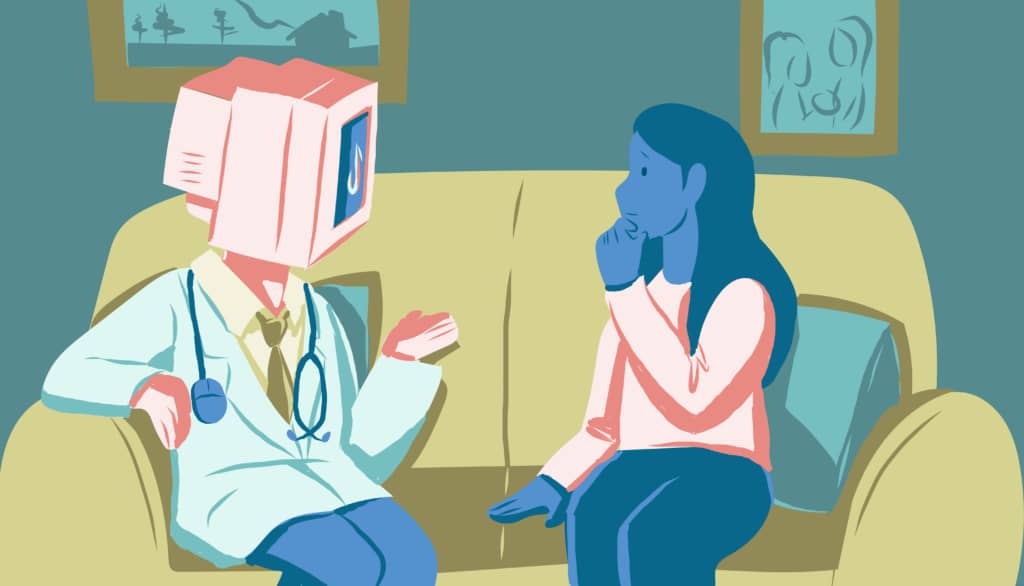Chantelle Bongubukhosi Ncube
In the digital era, the internet has become an indispensable tool for accessing information, including health-related content.
Many people in Bulawayo and across Zimbabwe have turned to the internet to diagnose their symptoms and illnesses rather than seeking professional medical advice. While the internet offers a wealth of information, this trend of self-diagnosis poses significant risks that can have dire consequences for individuals’ health and well-being.
The Appeal of Internet Self-Diagnosis
The primary allure of self-diagnosis through the internet lies in its convenience. With just a few clicks, individuals can access a plethora of medical information, ranging from symptoms and potential conditions to treatment options. For many in Bulawayo, where access to healthcare facilities can be limited or costly, the internet provides a seemingly quick and cost-effective alternative.
A 2023 survey by the Zimbabwe National Statistics Agency (ZimStat) revealed that 64% of internet users in urban areas like Bulawayo have searched for health-related information online at least once in the past year.
One of the most significant disadvantages of using the internet for self-diagnosis is the risk of encountering inaccurate or misleading information. Not all online sources are reputable, and many websites lack proper verification from qualified medical professionals.
This misinformation can lead to incorrect self-diagnoses, resulting in unnecessary anxiety or, conversely, a false sense of security.
A study conducted by the National University of Science and Technology (NUST) in 2022 found that 38% of Bulawayo residents who self-diagnosed online ended up misdiagnosing their conditions. This led to either underestimating serious health issues or overestimating minor symptoms, causing them to delay seeking proper medical care.
Overlooking Critical Symptoms
Another critical concern with internet self-diagnosis is the potential to overlook or misinterpret symptoms that require immediate medical attention.
For example, common symptoms like headaches, fatigue, or chest pain could be indicative of various conditions, ranging from stress to life-threatening issues such as heart disease or cancer. Without the expertise of a trained medical professional, it is easy for individuals to misinterpret these symptoms, potentially leading to severe health outcomes.
A case in Bulawayo that gained media attention involved a 29-year-old woman who repeatedly dismissed her persistent chest pain as a minor issue after reading online that it could be related to stress. Unfortunately, it was later discovered that she had a severe heart condition that required urgent medical intervention. This delay in seeking professional help almost cost her life.
The Psychological Impact of Self-Diagnosis
The psychological impact of self-diagnosis should not be underestimated. Constantly searching for symptoms online can lead to a condition known as “cyberchondria,” a term coined to describe the heightened anxiety some individuals experience when researching health conditions on the internet.
This anxiety can be exacerbated by the overwhelming amount of information and the tendency to focus on worst-case scenarios.
According to a study published by the Zimbabwe Psychological Association in 2021, approximately 25% of Bulawayo residents who frequently use the internet for self-diagnosis reported experiencing increased levels of health-related anxiety. This anxiety can have a detrimental effect on mental health, leading to further stress and, in some cases, depression.
The Importance of Professional Medical Advice
While the internet can be a valuable resource for general health information, it is no substitute for professional medical advice.
Doctors in Bulawayo emphasize the importance of consulting a healthcare professional when experiencing any health concerns. Medical practitioners are trained to consider a patient’s entire medical history, conduct physical examinations, and order appropriate tests to arrive at an accurate diagnosis.
Dr. Nkosana Moyo, a general practitioner in Bulawayo, notes,
“The danger with self-diagnosis is that it often leads to incorrect conclusions. In my practice, I’ve seen patients who have delayed seeking help because they thought their symptoms were minor, only to find out later that they were dealing with a serious condition. The earlier a condition is diagnosed, the better the chances of successful treatment.”
The trend of using the internet to self-diagnose health conditions is a growing concern in Bulawayo, as it can lead to misdiagnosis, delayed treatment, and unnecessary anxiety. While the internet offers valuable information, it should be used cautiously and never as a replacement for professional medical advice.
To ensure proper healthcare, it is crucial for individuals to consult a qualified doctor when experiencing any symptoms, as early intervention can make all the difference in achieving a positive health outcome.
Zim GBC News©2024


